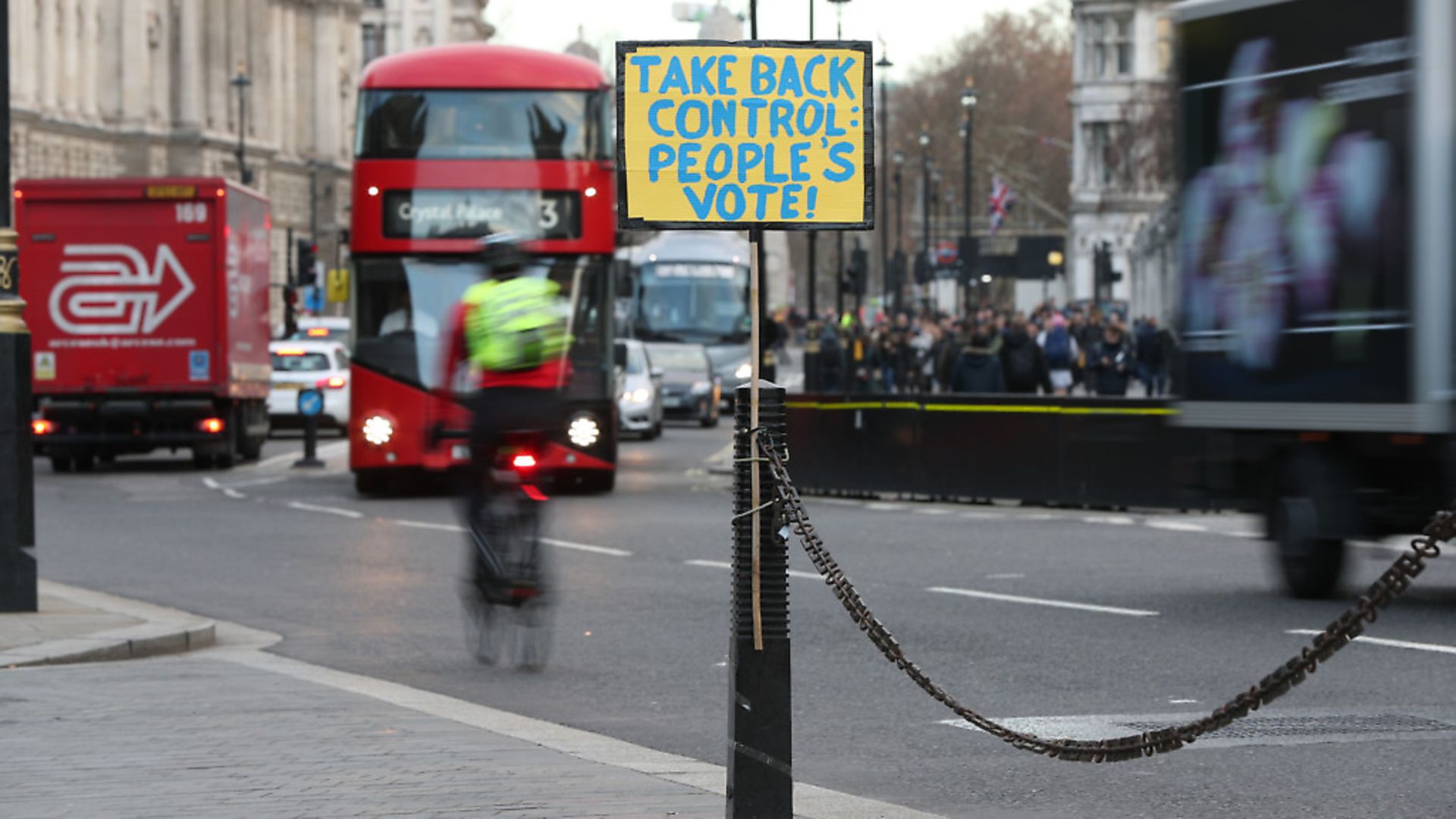
The likelihood of a second referendum being held to break the political deadlock over Brexit has ‘risen sharply’, forecasters have claimed.
The Economist Intelligence Unit (EIU) have put the probability of another poll at 50%, up from 30% in a similar analysis less than a fortnight ago, and said it now expects the government to delay Britain’s exit.
And it predicted that the prime minister’s ‘plan B’ for Brexit will not be sufficient to secure parliamentary approval, and placed the chance of it succeeding at 20%.
The EIU had previously said there was a 40% chance of May getting a version of her deal approved by parliament eventually.
It said a People’s Vote would give popular legitimacy to the next course of action, be it adopting a version of May’s deal, leaving with no deal or stopping Brexit.
MORE: American talk show baffled by Brexit and ask why there isn’t another vote
The analysis also predicted a 15% probability for a soft Brexit option, a 10% chance of a general election and a 5% likelihood of a no deal outcome.
Danielle Haralambous, UK analyst at the EIU, said Theresa May’s ‘plan B’ for her Brexit deal is ‘unlikely to do much to revive it’.
‘As before, a lot depends on how much the EU is willing to bend on the Irish backstop arrangement, and as before, the EU has made clear that it will not.
‘With the deal unlikely to be revived, the Brexit options have narrowed, and in our view the probability of a second referendum being held to break the political deadlock has risen sharply.
MORE: Why second referendums hold the establishment to account
‘We still think that when it comes down it, Mrs May and her government are not prepared to run down the Article 50 clock and leave the EU without a withdrawal agreement and transition arrangements in place.’
She added: ‘We therefore expect the government to request an extension that avoids a cliff-edge situation, and in our view a second referendum is the most likely next step.
‘The outcome of such a referendum will depend on how the options are phrased and how the vote is structured, and this will be the subject of a lengthy parliamentary debate.
‘One downside from this outcome is that delaying Brexit to hold a referendum that includes the possibility of a vote for ‘no deal’ extends the period of economic uncertainty faced by businesses, weighing on activity in the near term.
‘We are revising down our forecast for economic growth in the UK in 2019, to 1.1% from 1.4% previously.’
Warning: Illegal string offset 'link_id' in /mnt/storage/stage/www/wp-includes/bookmark.php on line 357
Notice: Trying to get property 'link_id' of non-object in /mnt/storage/stage/www/wp-includes/bookmark.php on line 37






